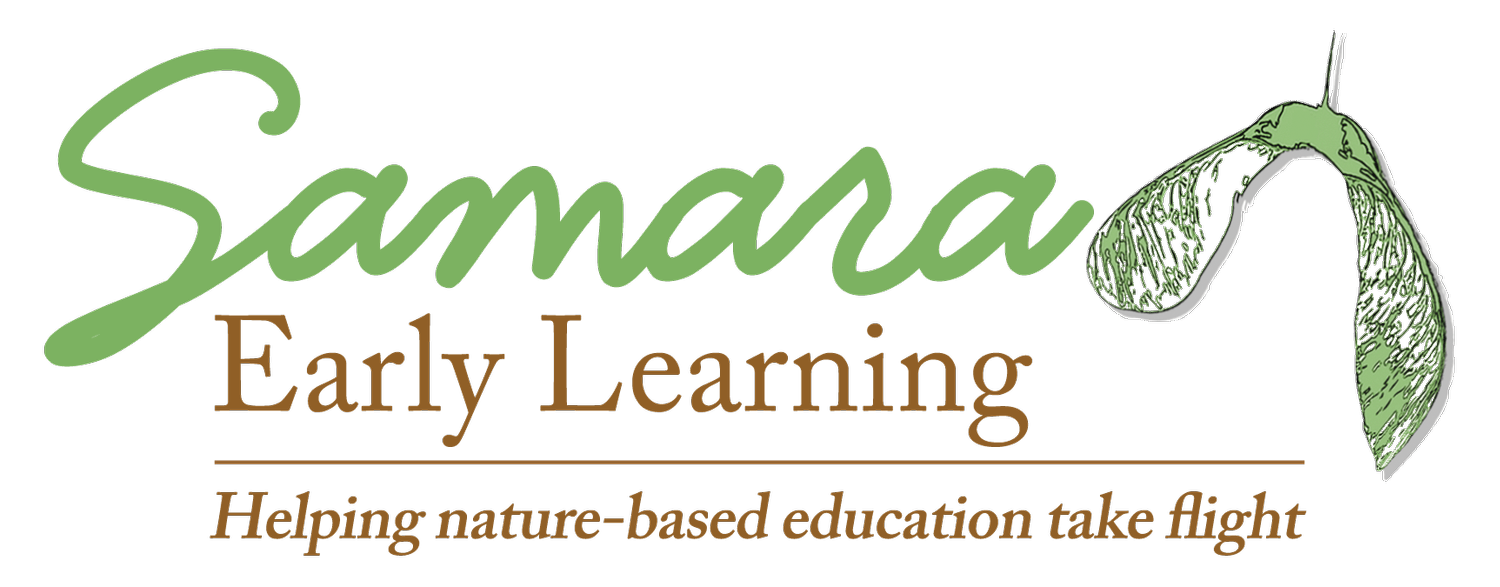Freebies!
Free resources related to nature-based early childhood education
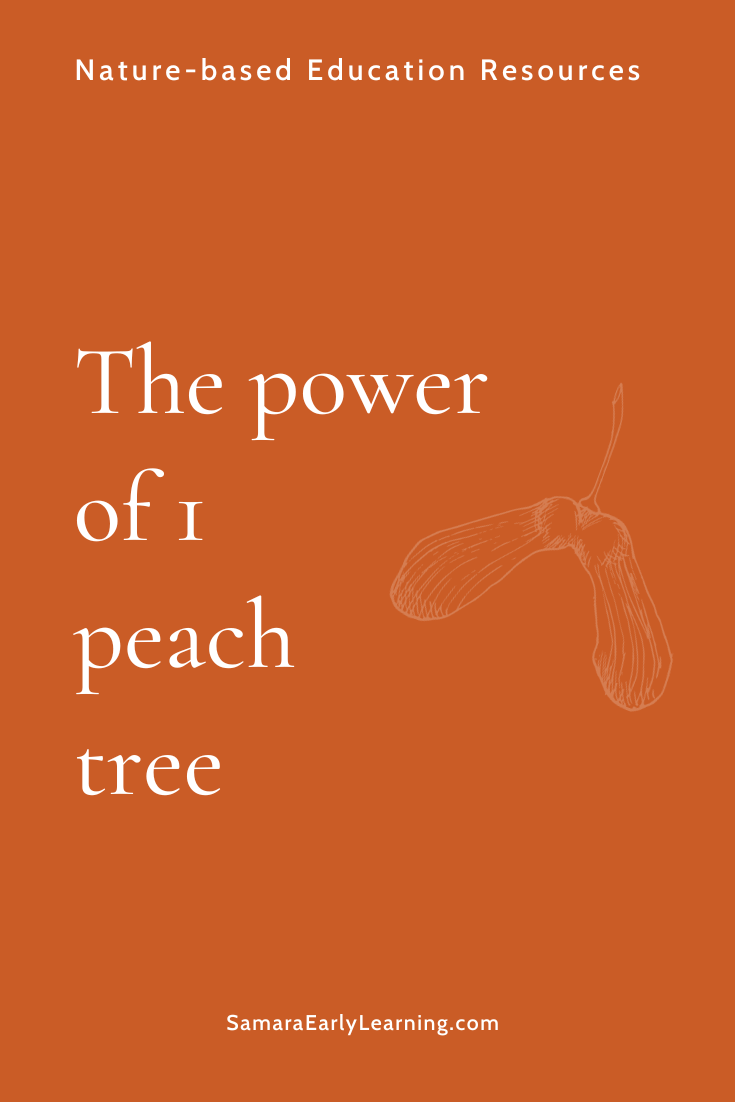
The power of 1 peach tree
A home provider recently shared this story with me about the peach tree in her backyard. She went on to describe the pure joy the children experienced in eating the peaches they had watched for so long, and I want to share it with you now.
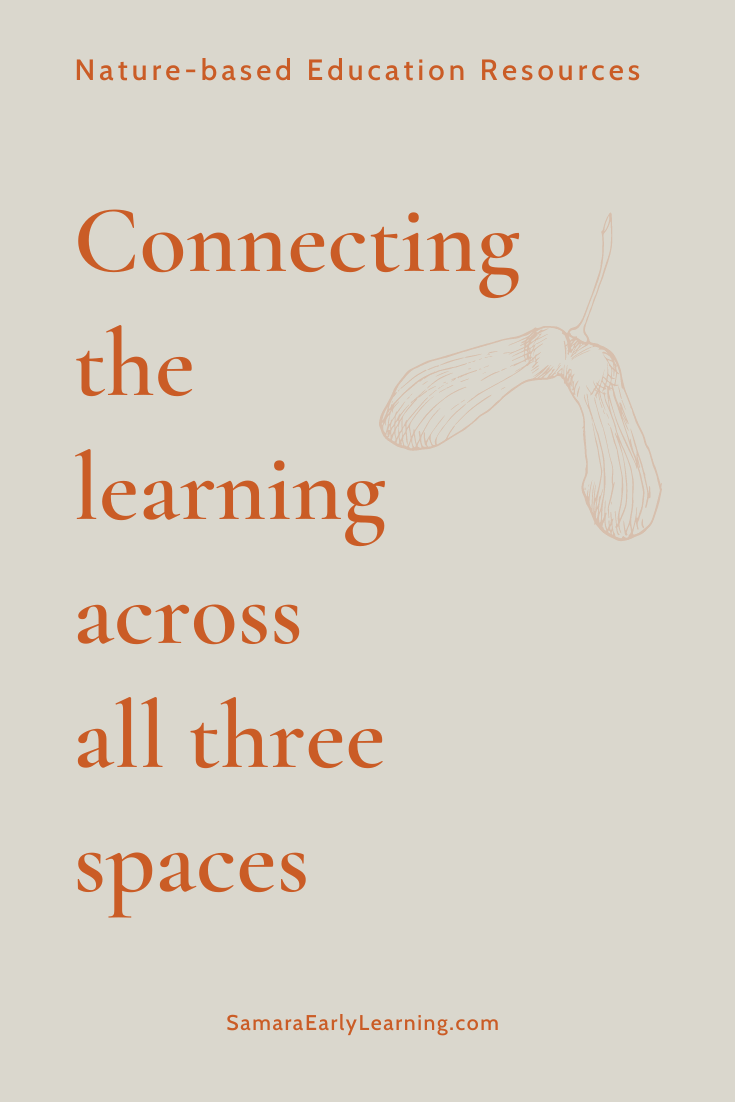
Connecting the learning across all three spaces
You’ve heard me talk about the three spaces of the Inside, Outside, and Beyond. While the spaces themselves are important, what brings nature-based pedagogy to life is how we use those spaces.
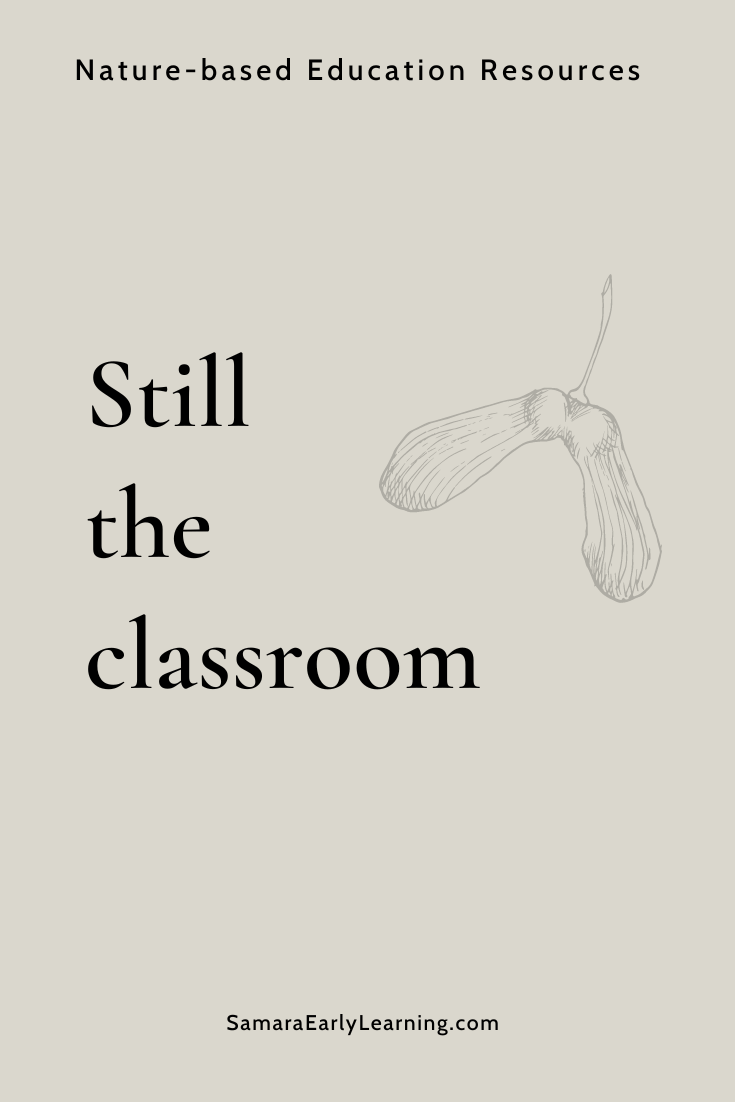
Still the classroom
By considering the types of play opportunities available, we can shift toward the outdoor play space truly serving as an extension of the classroom where teachers are as engaged in supporting children’s play as they are indoors.
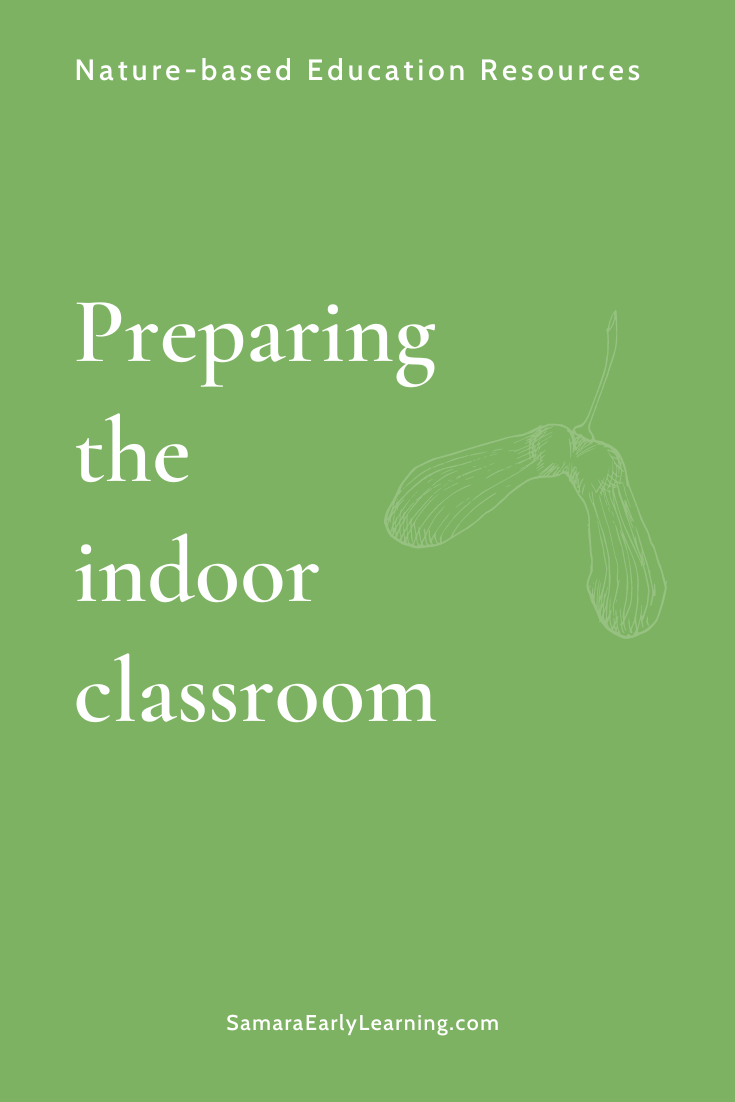
Preparing the indoor classroom
The start of the school year is typically when we tend to purchase the most consumable supplies, equipment, toys for our indoor classroom space. I want you to maximize your money by being intentional about the materials you choose so they encourage deep learning and hopefully learning with nature.
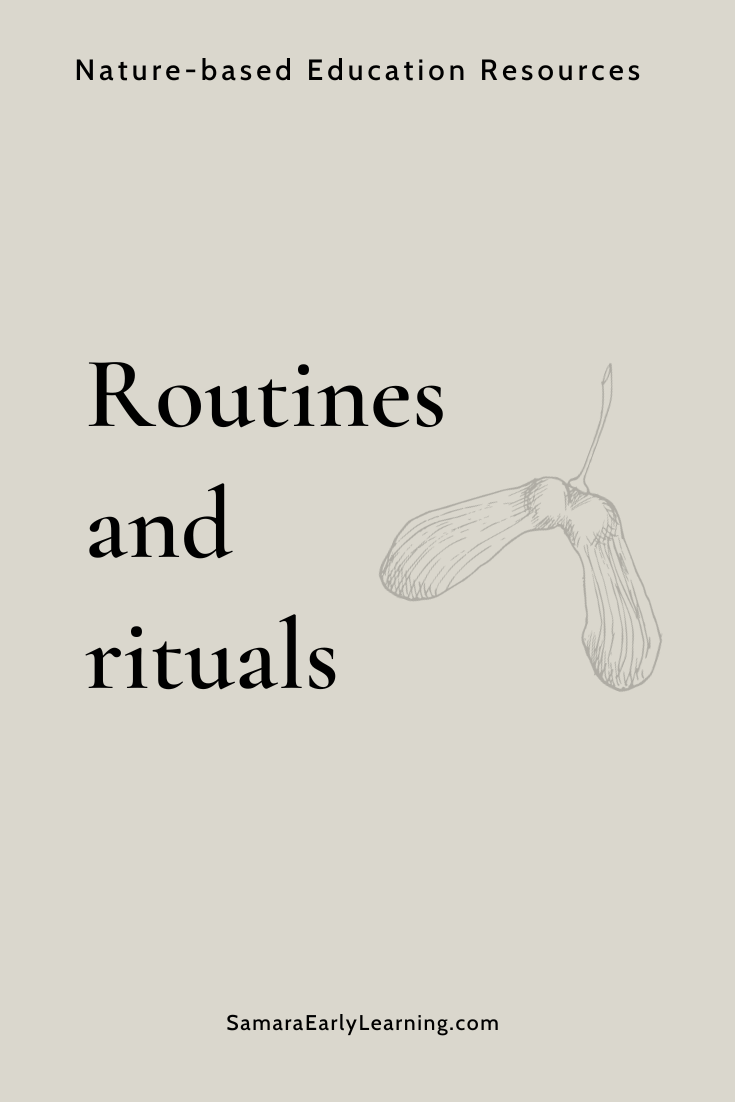
Routines & rituals
Rituals are about connection between people through eye contact, appropriate touch, presence, and playfulness. What if we intentionally worked to make our routines a time for connection?
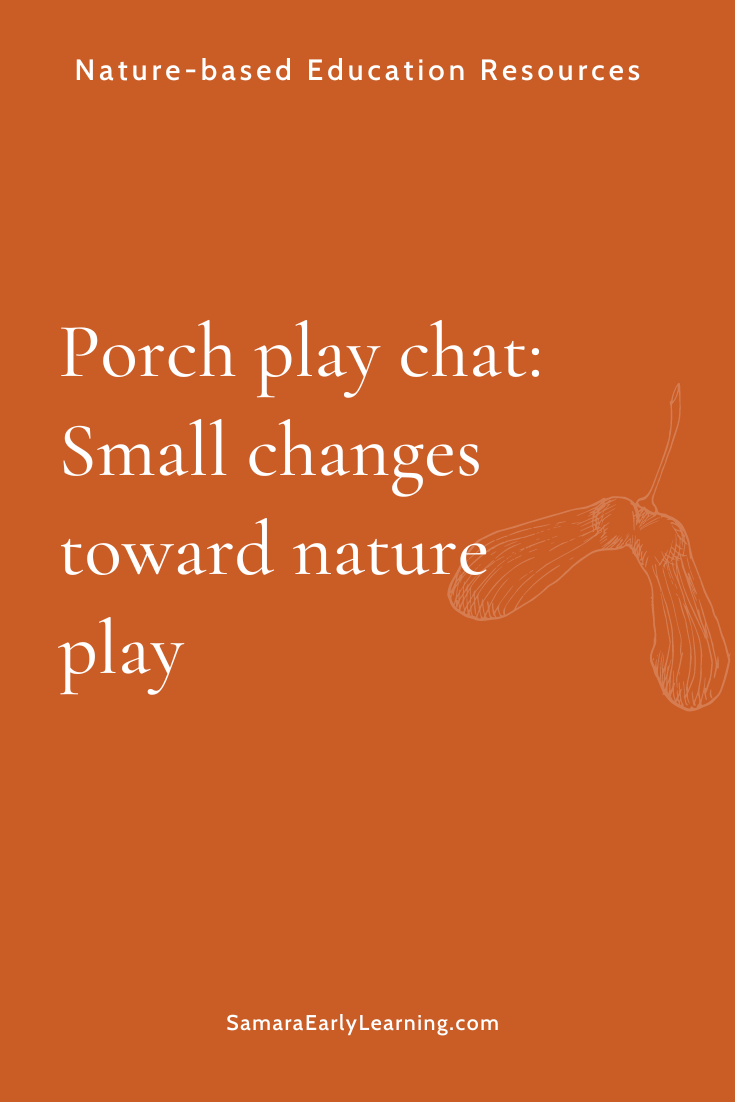
Porch play chat: Small changes toward nature play
In this video, Dr. Rachel A. Larimore & International Play Association USA President, Deb Lawrence, sit down and discuss the importance of play in learning.

Play area clarifications
As the nature-based education movement grows there are more and more playgrounds that look natural, but function the same as a traditional playground–with few choices for play, minimal loose parts, and heavy emphasis on physical play rather than a mix of play types.
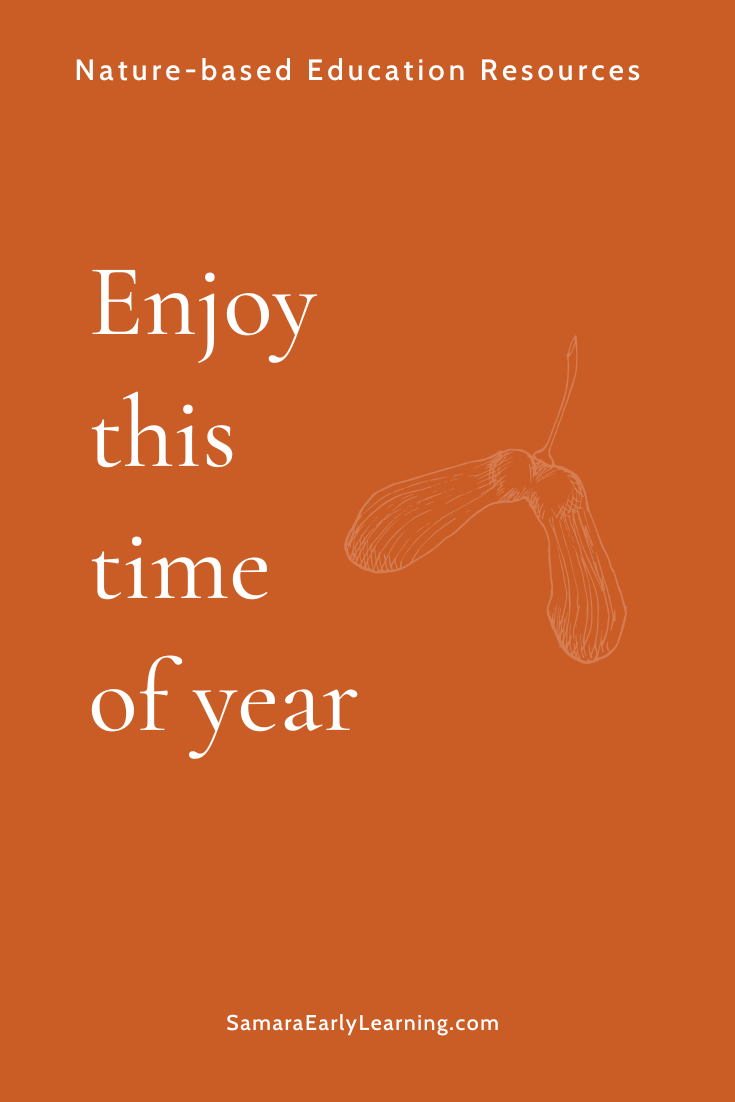
Enjoy this time of year
Spring is a GLORIOUS time in a nature-based program! Yes, it’s busy and chaotic. But, if we are mindful we are able to enjoy the wonders of this season.
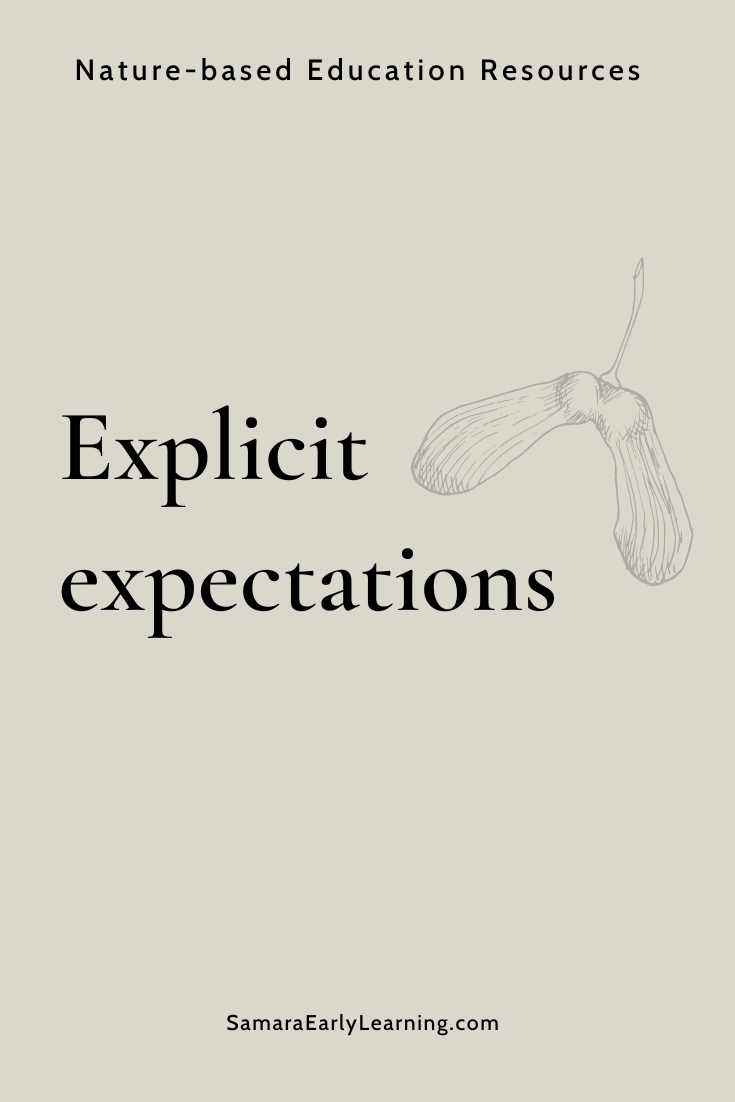
Explicit expectations
If expectations don’t match reality we can experience resentment, frustration, and a myriad of other emotions. It’s for this reason it’s important to be clear about our expectations–to ourselves and to others involved.
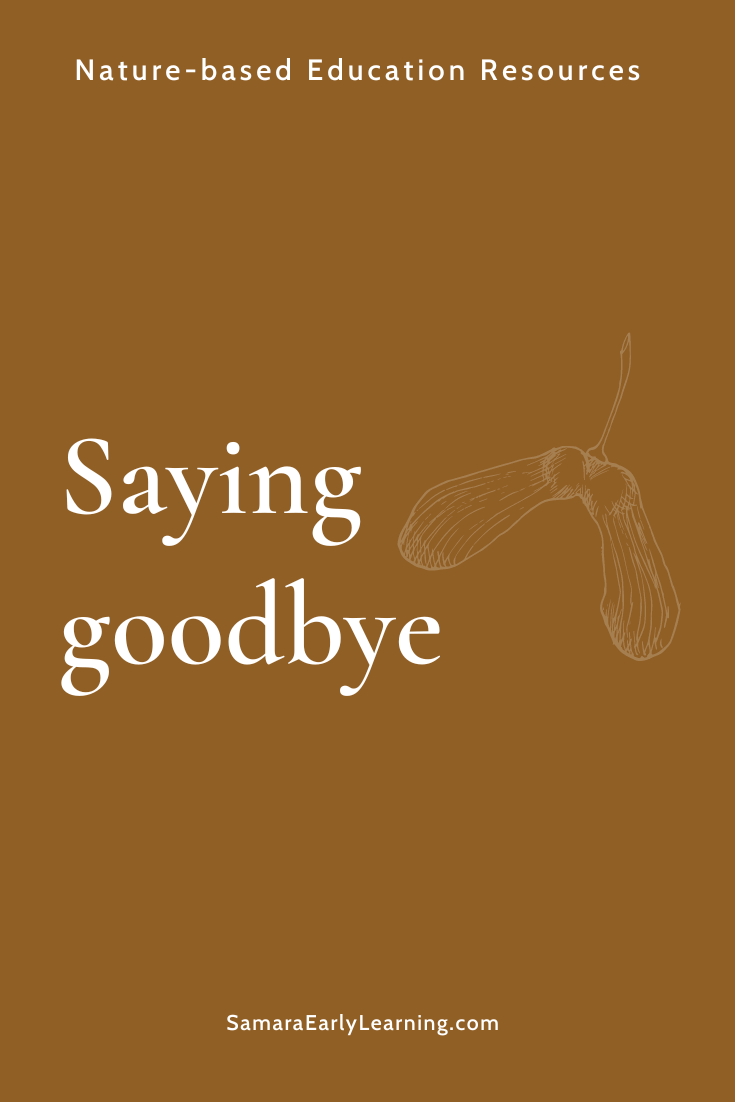
Saying goodbye
As the end of the school year is approaching, children, families, and teachers will be saying goodbye to routines and communities they’re accustomed to and starting anew.
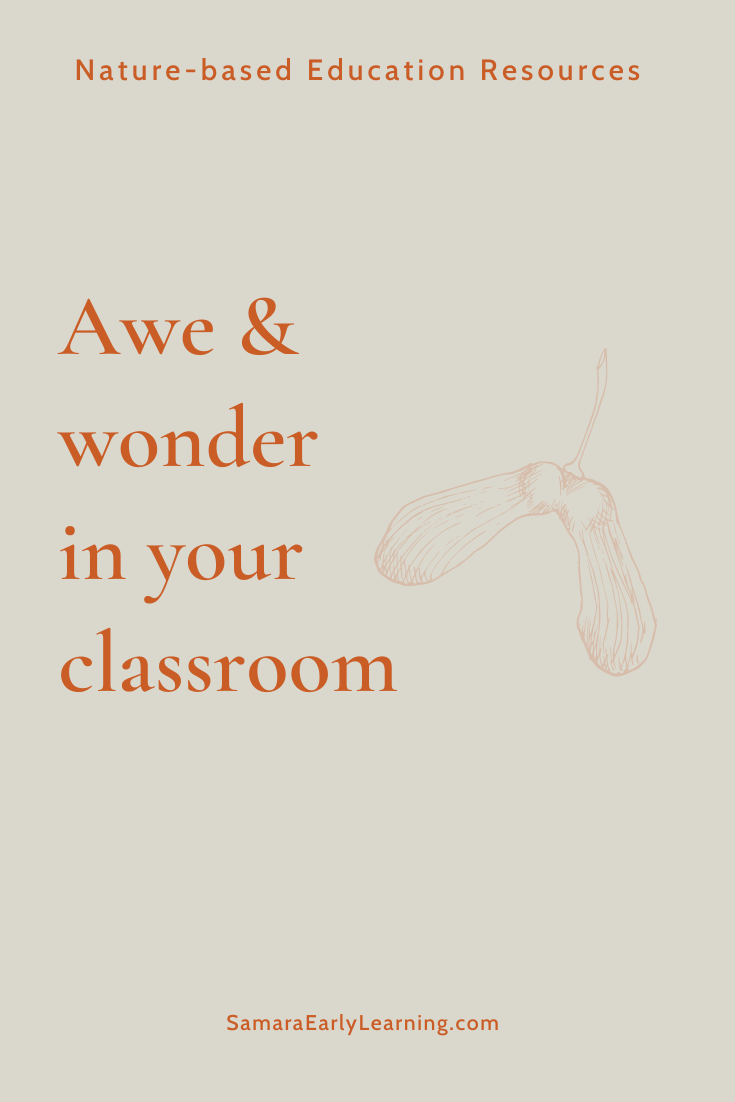
Awe and wonder in your classroom
Awe and wonder are two words I use a lot when discussing nature-based education. Recently, I listened to a podcast which opened my eyes to even more types of awe and wonder in the world – including the early childhood classroom.
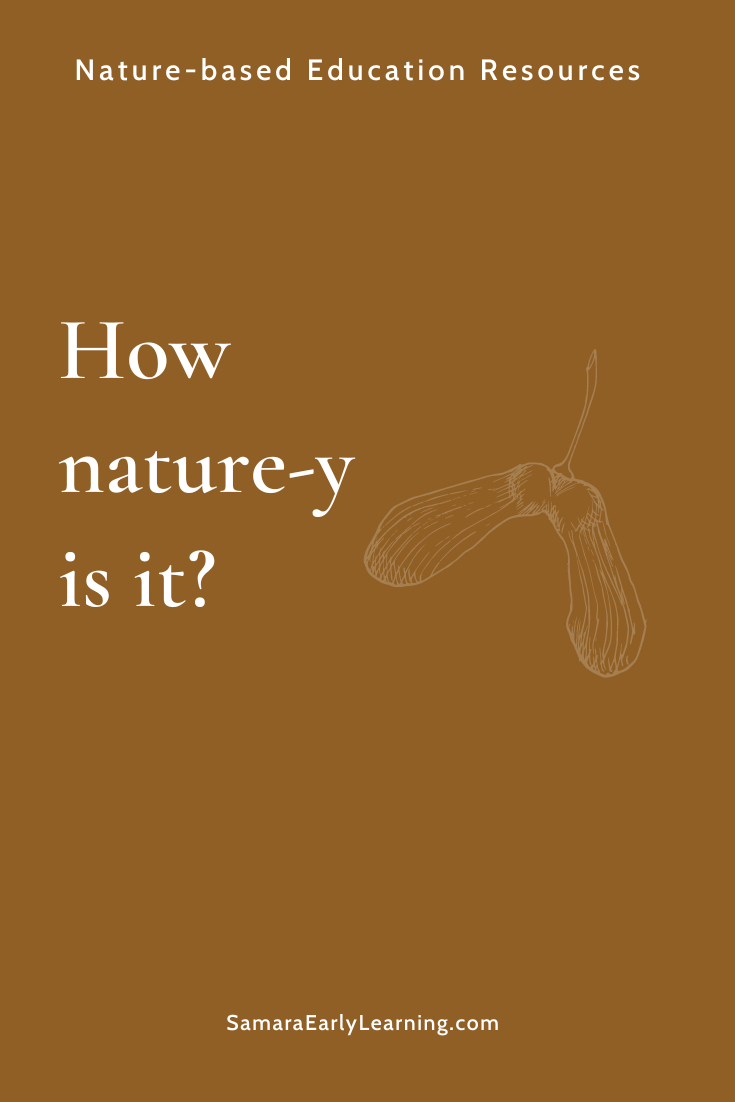
How nature-y is it?
The number of nature-based programs is continuing to increase throughout the world. This is great news! And yet...not all of these programs are really “nature-based.” Some programs go outside every day and call that enough.
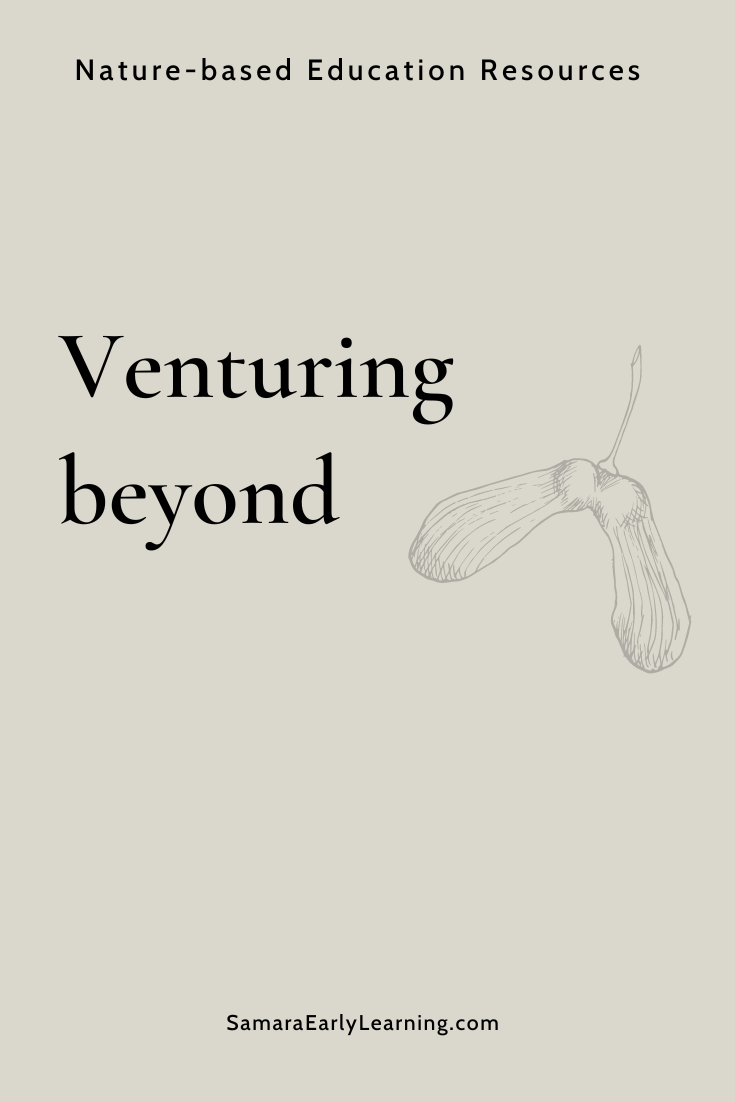
Venturing beyond
Going to the Beyond–whether to a neighboring natural area, local park, or around the block–does require some forethought. We can’t just open the gate and see what happens.
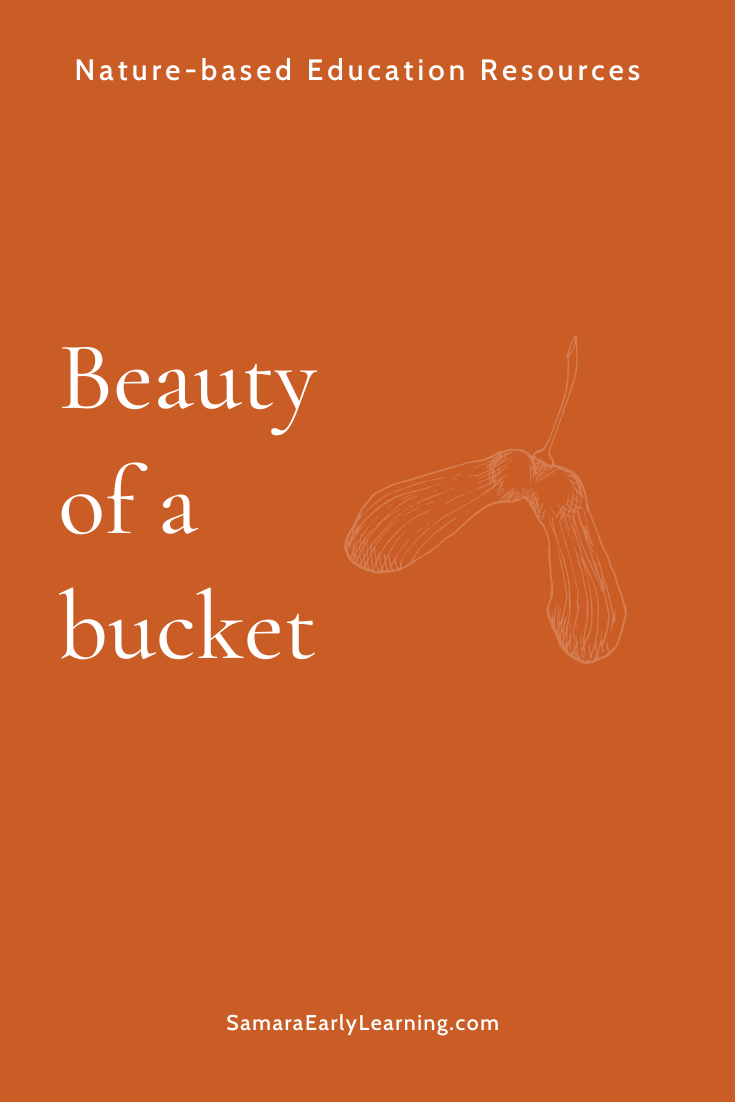
Beauty of a bucket
I’ve had many conversations lately about buckets. I have a feeling this isn’t typical. But buckets are beautiful things—especially to a nature-based early childhood educator!
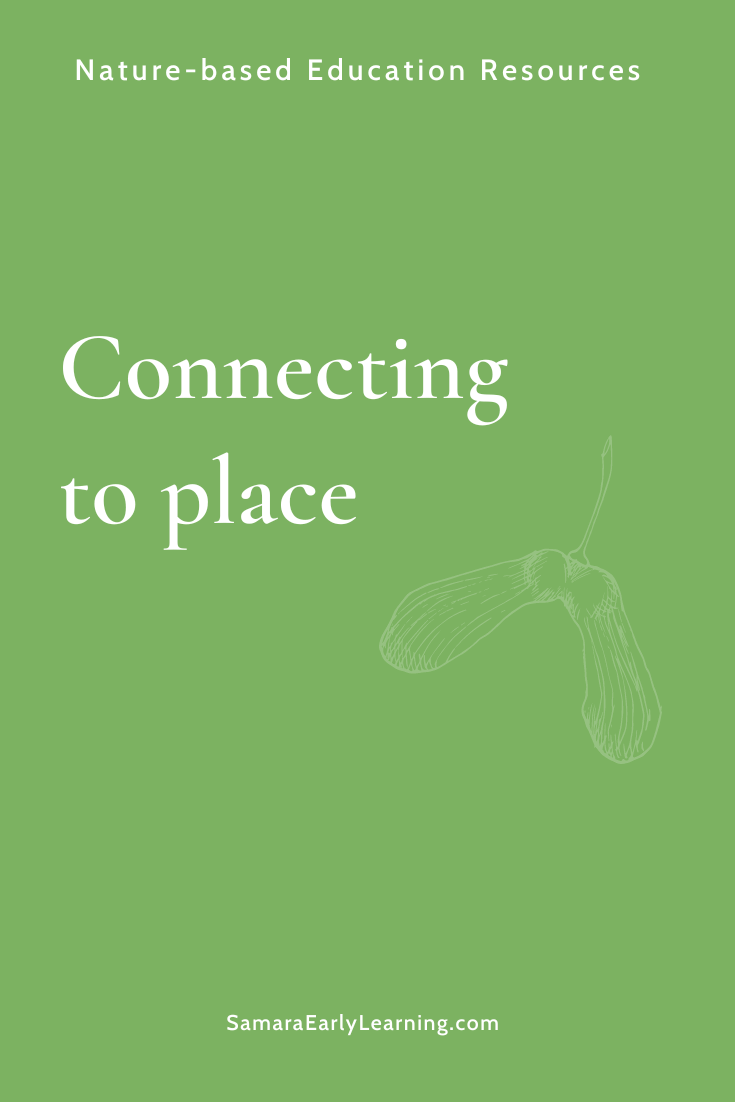
Connecting to place
One of the core principles of nature-based education is connecting children to local, authentic nature. This means connecting them to the nature found in their place in the world.

Managing the Shift to a Nature-Based Approach in Your Program
In this webinar Dr. Rachel Larimore addressed the foundational administrative and pedagogical practices to successfully shift your team to a nature-based approach. Most importantly, she addressed the human element, including how to best support staff and families in your evolving infusion of nature.
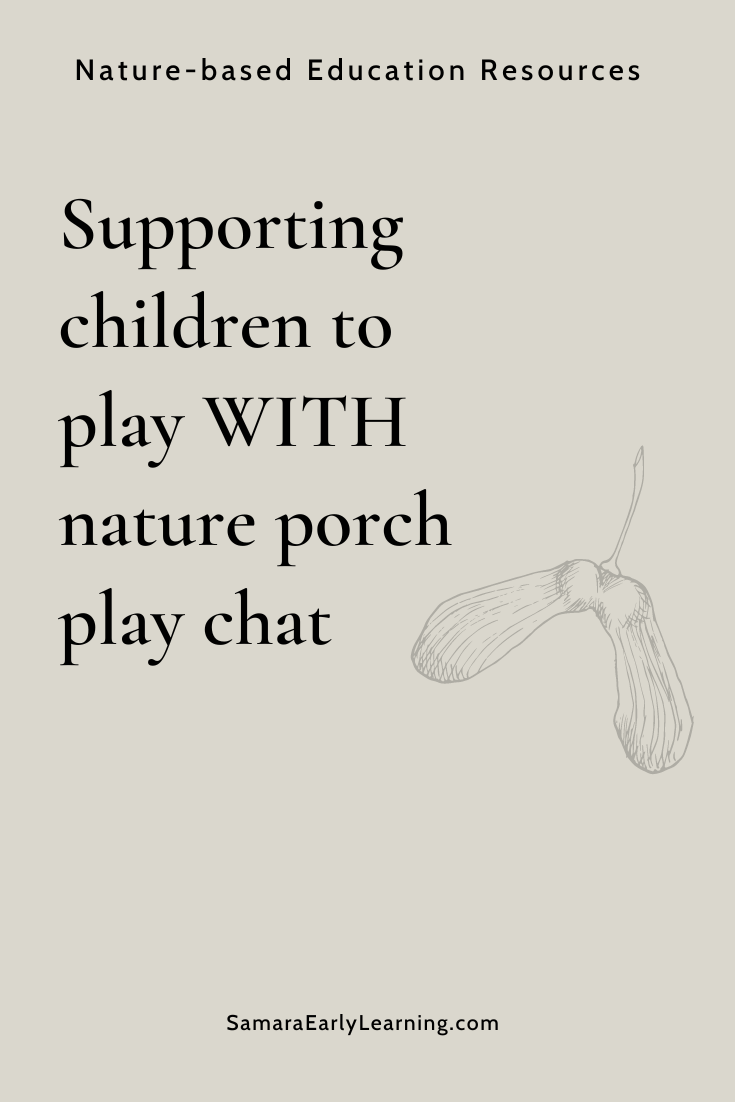
Porch play chat: supporting children to play WITH nature
In this video, Dr. Rachel Larimore discusses the importance of play in learning, and how we have to be more intentional than ever to integrate the outdoors and play-based learning with our children.
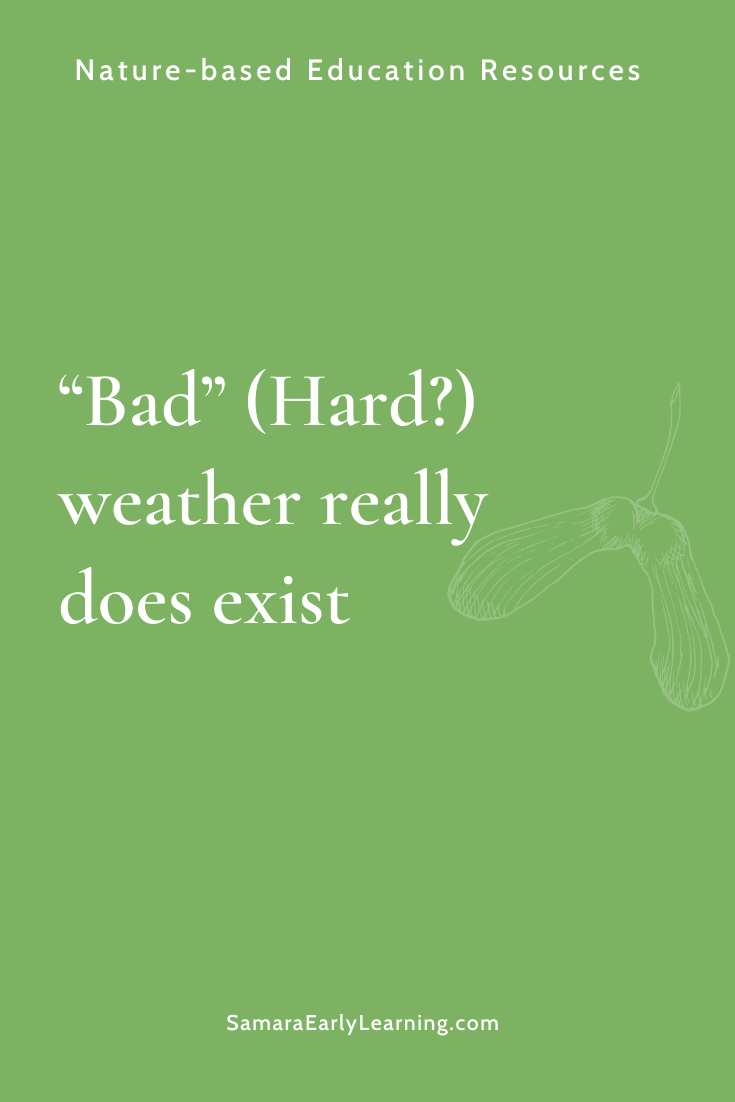
“Bad” (Hard?) weather really does exist
In this post from the weekly Samara Early Learning newsletter our Chief Visionary Dr. Rachel Larimore reflects on how bad weather DOES exist and how the phrase “there’s no such thing as bad weather” may be limiting.
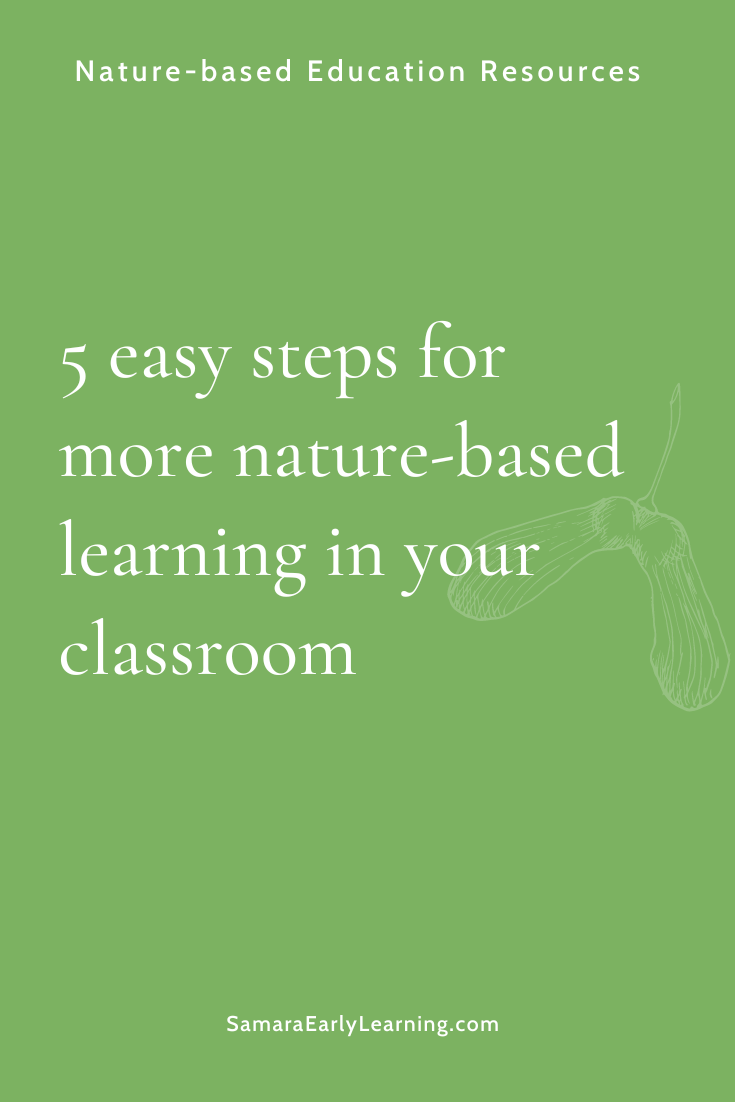
Five steps to facilitate more nature-based learning in your early childhood classroom
This recorded edWebinar, presented by Dr. Rachel Larimore, provides five simple steps to intentionally integrate a nature-based approach into teaching practice—no matter your current situation.

Inclusive in what counts as nature
In this post from Rachel's weekly newsletter, she discusses all the things that count as nature!
